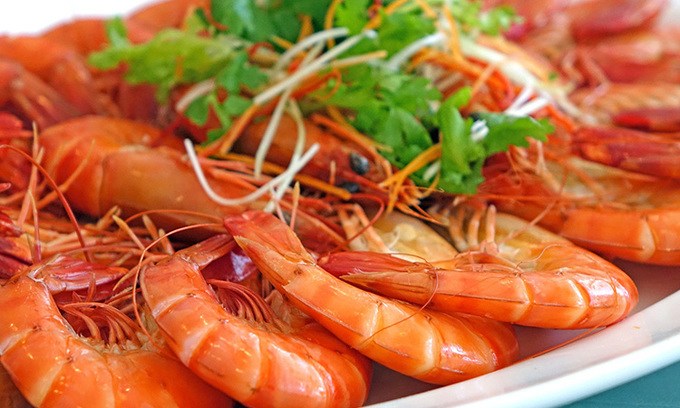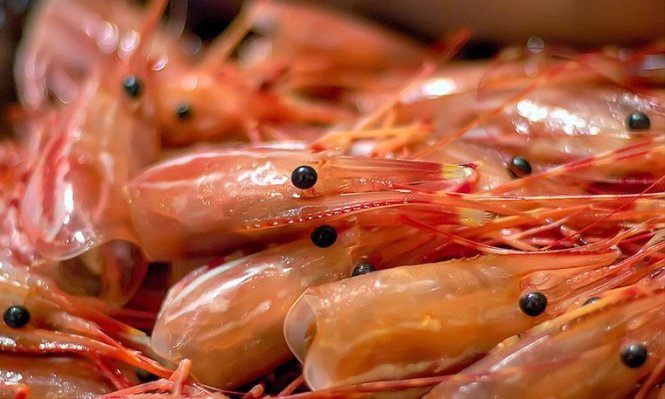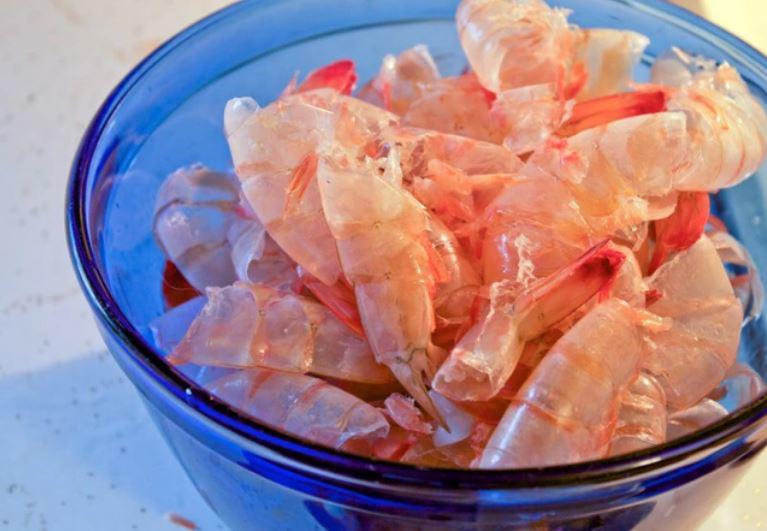Ingredients of shrimp shells
Shrimp contains high levels of protein, calcium, phosphorus… bring great benefits to health. Because of the nutritional value that shrimp bring, we have many misconceptions about shrimp shells.
Many people believe that shrimp shells contain a lot of calcium. In fact, this notion is completely wrong. According to scientific research, shrimp shells do not contain calcium. The main calcium source of shrimp is in the shrimp meat.
The main ingredient in shrimp shells is a protein called keratin, which is a polymer that creates shells for crustaceans. Shrimp shells, like human hair or nails, do not provide nutrition for people to eat, shrimp shells only work to protect their soft tissues.
Should you eat shrimp shells?
Many people often have the habit of removing the shrimp shell when eating because it is hard, making it difficult to eat, and reducing the flavor of the dish. This has absolutely no effect on the nutritional value that shrimp brings to health. However, eating shrimp shells is also safe, with almost no harm to health.
Besides, many doctors recommend not to eat shrimp shells for people with poor digestive system, people allergic to shrimp, pregnant people, young children and the elderly. Hard shrimp shells can cause indigestion, bloating and difficult to decompose shrimp shells. In addition, there are some people when consuming too much shrimp shells can cause reactions or symptoms of food poisoning such as:

– Stomachache
– Vomiting
– Diarrhea
– Swelling of the throat, tongue or lips
– Shortness of breath
– Stomach pain and cramps
In some cases, people with a shrimp shell allergy can experience life-threatening anaphylaxis, which requires immediate treatment. Shellfish allergy is one of the most dangerous and serious allergies that can be life-threatening. If you are allergic to shellfish, you need to completely avoid eating shrimp shells and also broths made from shrimp shells.
Another concern concerns shrimp shells and gout. Shrimp shells can contain many heavy metals, increasing the amount of acid that accumulates in the body, thereby aggravating gout, causing pain and discomfort. Therefore, people with gout should not eat a lot of shrimp and shrimp shells.

Eating shrimp shells also does not provide calcium as many people think. If you need calcium, focus on eating shrimp, removing the head, legs and tail. Although shrimp are nutritious, we should not eat more than 100 grams / day, children under 4 years old should only eat 20 – 50 grams, if eaten too much, it can cause indigestion.
In addition, you should also not eat some other parts of shrimp such as the head and the black thread on the back of the shrimp because:
– The head is the part of the shrimp waste. This part contains many heavy metals that will be harmful to human health, especially in pregnant women and young children. Toxins of heavy metals such as arsenic cause birth defects in the fetus or miscarriage, food poisoning.
The black line on the back of the shrimp is the digestive tract of the shrimp. It is not harmful to health, but to enhance food hygiene, you should remove the sugar from shrimp only when processing and consuming.
at Blogtuan.info – Source: Eva.vn – Read the original article here





